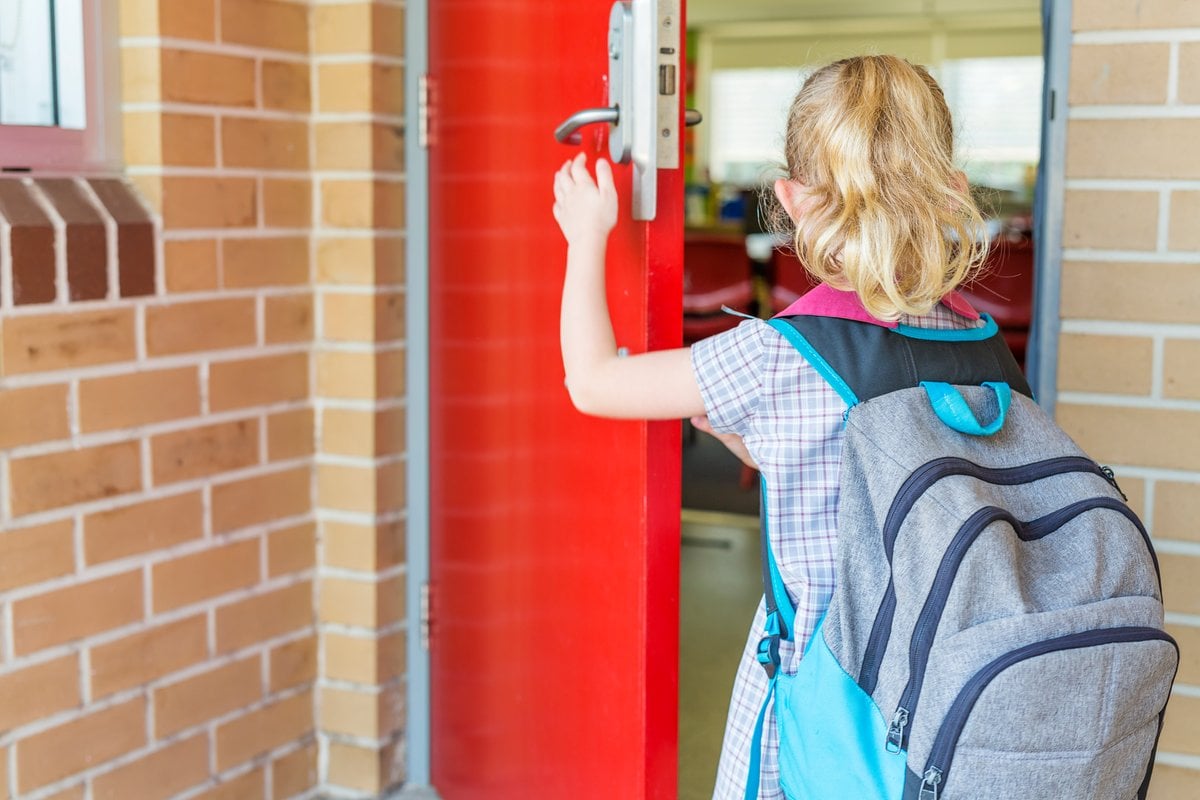
Parents with children aged between four and five who will start school in 2024, are currently navigating the enrolment paperwork and open days.
There's a lot to organise and think about and it can be an emotional time for the whole household as you gear up for the next big stage of your child's life.
Teacher, mum and author of Before Big School, Danielle Murray, says that there are some things parents can do to help their child feel properly ready.
And it might not be as hard as you think.
"Many parents feel like they need to teach their kids how to read and write before they start school and it's not actually the case," Murray tells Mamamia.
Watch: Two types of parents school shopping. Post continues below.
"Gone are the days of flash cards and formal home learning. These days, we encourage a lot more meaningful, play-based learning that embeds school readiness into a normal day."
Danielle suggests that parents focus on these seven key areas for readying kids for primary school.
1. Basic literacy.
"It's not about teaching your child to read. Instead, it's more about fostering a love of reading," Murray says.
"Go to the library or bookshop and let your child choose a book they are interested in. If they love dinosaurs, point them towards a book about dinos. Make reading books fun and engaging and encourage questions and conversations about the subject."

Top Comments